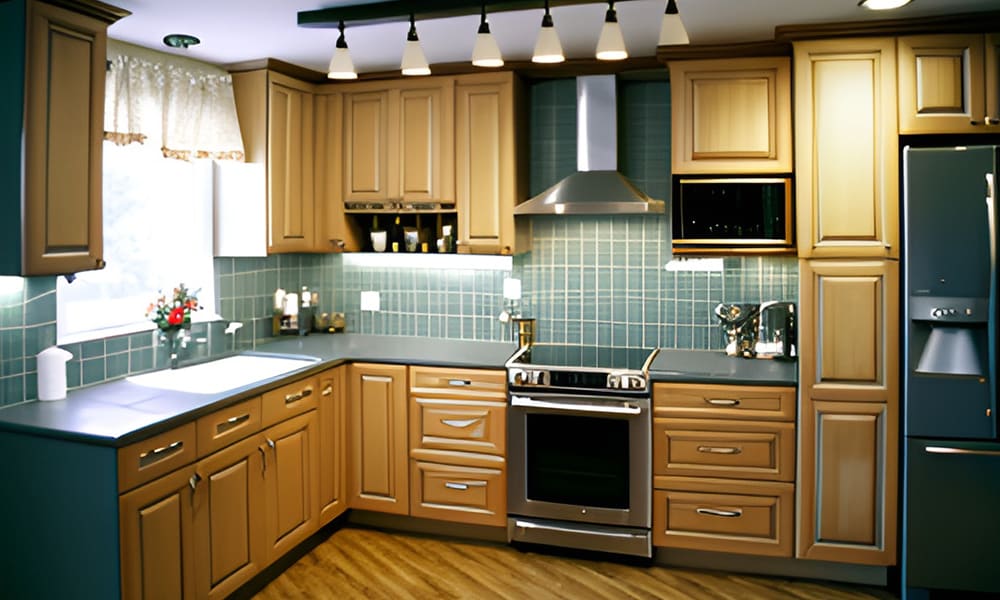Kitchen Remodel Planning: What to Know When Looking Into Home Improvement Projects
A kitchen remodel can improve both function and appearance, but many factors go into planning a renovation. This article explores what homeowners are considering — from layout changes and materials to budget planning and how to approach the process with long-term goals in mind.

What factors should you consider before remodeling a kitchen?
Before diving into a kitchen remodel, it’s crucial to assess your current space and identify your needs. Consider your lifestyle, cooking habits, and how you use the kitchen. Do you need more counter space, improved storage, or better flow? Evaluate the existing layout and determine if major structural changes are necessary. Think about your long-term goals for the space and how the remodel will impact your home’s overall value.
Another important factor is timing. Kitchen renovations can be disruptive, so plan the project during a season that works best for your family. Additionally, consider your home’s age and any potential underlying issues that may need to be addressed during the remodel, such as outdated electrical systems or plumbing.
What are popular layout and design options for kitchen remodels?
Modern kitchen design offers a variety of layout options to suit different spaces and preferences. The classic work triangle, which optimizes the distance between the sink, stove, and refrigerator, remains a popular choice. However, many homeowners are now opting for more open-concept designs that integrate the kitchen with living areas.
Popular layout options include:
-
L-shaped kitchens: Ideal for maximizing corner spaces and creating an open feel.
-
U-shaped kitchens: Offer ample counter space and storage on three walls.
-
Galley kitchens: Efficient for narrow spaces with parallel counters.
-
Island kitchens: Provide additional workspace and seating options.
Design trends are leaning towards clean lines, minimalist aesthetics, and multifunctional spaces. Many homeowners are incorporating features like hidden appliances, smart storage solutions, and statement lighting to personalize their kitchens.
How should you plan a kitchen renovation budget?
Creating a realistic budget is crucial for a successful kitchen remodel. Start by determining how much you can afford to spend and what financing options are available. Research the average costs for kitchen remodels in your area to set realistic expectations.
Break down your budget into categories such as:
-
Cabinetry and hardware
-
Countertops
-
Appliances
-
Flooring
-
Lighting
-
Plumbing fixtures
-
Labor costs
It’s wise to allocate 10-20% of your budget for unexpected expenses or changes during the renovation process. Prioritize the elements that are most important to you and be prepared to make trade-offs if necessary.
What materials are homeowners exploring for kitchen remodels?
The choice of materials can significantly impact both the aesthetics and functionality of your kitchen. Homeowners are increasingly exploring sustainable and durable options that offer both style and longevity.
For countertops, quartz and granite remain popular choices due to their durability and aesthetic appeal. However, eco-friendly options like recycled glass and bamboo are gaining traction. In cabinetry, wood remains a classic choice, but many are opting for painted finishes or sleek, modern materials like thermofoil.
Flooring options have expanded beyond traditional tile to include luxury vinyl planks, which offer durability and water resistance. For backsplashes, large-format tiles and unique materials like metal or glass are becoming more common, adding personality to the space.
When should you consult remodeling professionals for your kitchen project?
While some homeowners may opt for DIY renovations, consulting with professionals is often advisable for kitchen remodels. Consider reaching out to experts early in the planning process, especially if you’re considering major layout changes or structural modifications.
Professional designers can help you maximize your space, choose cohesive materials, and avoid costly mistakes. Contractors can provide accurate cost estimates, handle permits, and ensure that all work meets local building codes. If your remodel involves moving plumbing or electrical systems, it’s essential to work with licensed professionals to ensure safety and compliance.
What are the real costs associated with kitchen remodeling?
Kitchen remodel costs can vary widely depending on the scope of the project, materials chosen, and your location. Here’s a breakdown of average costs for different levels of kitchen remodels:
| Remodel Type | Description | Average Cost Range |
|---|---|---|
| Minor Remodel | Cosmetic updates, no layout changes | $10,000 - $30,000 |
| Midrange Remodel | New cabinets, countertops, appliances | $30,000 - $75,000 |
| Major Remodel | Layout changes, high-end finishes | $75,000 - $150,000+ |
| Luxury Remodel | Custom designs, top-tier materials | $150,000+ |
Prices, rates, or cost estimates mentioned in this article are based on the latest available information but may change over time. Independent research is advised before making financial decisions.
A kitchen remodel is a significant investment that requires careful planning and consideration. By thoroughly evaluating your needs, exploring design options, setting a realistic budget, choosing quality materials, and consulting with professionals when needed, you can create a kitchen that enhances your home’s value and your quality of life. Remember that while trends can provide inspiration, the most successful kitchen remodels are those that reflect your personal style and meet your specific needs.




